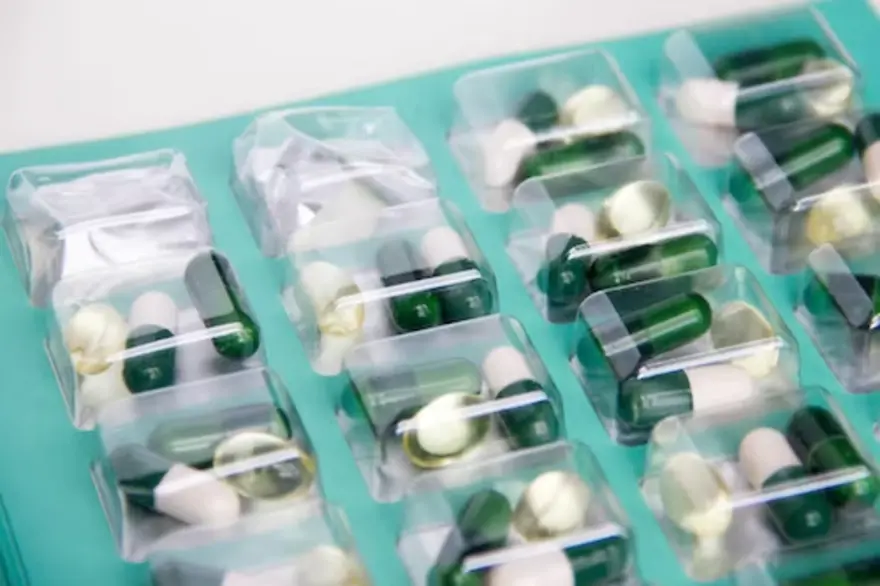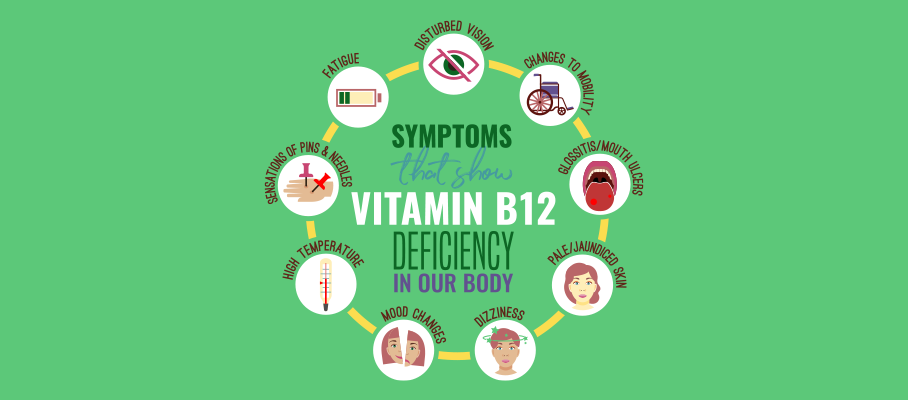Latest Blogs
Low Vitamin D and COVID-19: Are they related?
Vitamin D Vitamin D is a fat-soluble vitamin, which can be produced by exposure to sunlight. Ultraviolet B rays of the sun activate a protein in the skin called 7-dehydrocholesterol (7-DHC), which then is metabolized to the active form of vitamin D, which is vitamin D3. Dietary sources of vitamin D include egg yolk, milk, cheese, beef or calf liver and certain fish, certain cereals, soy milk, etc. Vitamin D has a number of critical roles in your body. Among these, key functions include absorption of calcium that helps strengthen bones, efficient muscle movement, aids in nerve conduction to and from the brain. Besides, vitamin D is important for immunity as it helps regulate immune system to fight off invading pathogens like bacteria and viruses. Vitamin D and viral infection Various studies have shown that Vitamin D supplementation helps in reducing the susceptibility of developing a flu by acting as a physical barrier against the infection, or through modulation of natural and/or adaptive immunity mechanisms to reduce the risk of infection.2 Research also supports the finding that low levels of vitamin D increases the risk of community acquired-pneumonia. Get your vitamin D levels tested within the comfort of your home. Association of vitamin D and COVID-19 The novel severe acute respiratory syndrome coronavirus 2 (SARS-CoV-2), responsible for the COVID-19 disease, has been implicated in the deaths of over 3.5 million people globally. Currently, there is no definite treatment available for this infection, hence, measures are being taken to discover aids that can help in reducing the risk of COVID-19. Moreover, owing to its high infectivity rate, the population also requires strategies that can limit progression and severity of COVID-19 infection. A study published in the Endocrine Society's Journal of Clinical Endocrinology & Metabolism, revealed that over 80% of COVID-19 patients in a hospital exhibited vitamin D deficiency. Therefore, the appropriate approach includes identification and treatment of vitamin D deficiency, particularly in high-risk individuals such as the elderly, patients with comorbidities, who are the main target population for the COVID-19. Moreover, low levels of vitamin D are associated with 3.7-fold increase in the odds of dying from COVID-19 infection. Similar findings were seen in a Asian study that showed vitamin D insufficiency might compromise respiratory immune function, increasing the risk of severity and death rate in patients with COVID-19. The most commonly encountered symptom in patients with COVID-19 is fever and dry cough, whereas severe forms of the disease can lead to the development of acute respiratory disease syndrome (ARDS). Researchers have found out that vast majority of COVID-19 ARDS patients had vitamin D deficiency, and these patients required longer mechanical ventilation and were associated with a higher death rate. In addition to ARDS, heart failure is one of the fatal adverse outcomes of COVID-19. Studies have shown that Vitamin D supplementation, because of its protective effect on cardiac muscle cells, can be beneficial by reducing the risk of heart disease in these patients. Besides, comorbidities like high blood pressure, diabetes, obesity are considered as risk factors in increasing complications in people with COVID-19. Various studies have found strong correlation between deficiency of Vitamin D and increased risk of high blood pressure, diabetes and obesity. Hence, the hypothesis suggests that its supplementation can decrease the likelihood of complications in patients infected with COVID-19. Furthermore, vitamin D deficiency has been related to reduced immune function and may enhance the cytokine storm and its supplementation may reduce complications related to cytokine storm and uncontrolled inflammation in people with COVID-19. Hence as per some experts, one of the management strategies for reducing severity and death rate in patients with COVID-19 should include normalization of vitamin D levels. Beneficial effects of vitamin D supplementation in COVID-19 patients Numerous research have shown that having healthy levels of vitamin D can help keep your immune system healthy and may protect against respiratory illnesses. Although there is currently no cure for COVID-19, studies have highlighted the importance of vitamin D supplements in the prevention and treatment of COVID-19 complications. Some of the evidence suggesting benefits of vitamin D supplementation in COVID-19 are as follows: It has been reported that a high dose of vitamin D could reduce the need for intensive care stays in patients infected with COVID-19. Vitamin D supplementation was considered as a safe therapy, and it protected against acute respiratory tract infection. An Indian study suggested that high dose of Vitamin D3 (60000 IU) supplementation for seven days helps in coronavirus clearance. Although most older individuals, often have lower vitamin D levels and are most susceptible to COVID-19, a study showed that supplementation of vitamin D could decrease death rate in this group. Make sure to take extra care of your elderly. Book an exclusive health package for seniors. The general recommendation is to supplement people who do not belong to a risk group, are healthy with a recommended daily dose (800 IU). In view of the positive effects of vitamin D supplementation on vitamin D-deficient patients with COVID-19, few practical recommendations are as follows: Current public health guidelines for normalizing vitamin D status should always be followed Vitamin D levels should be measured in patients hospitalised with COVID-19 and should be supplemented to a level >30ng/mL (optimal 40–60ng/mL), specifically when the baseline level is <10ng/mL In Covid-19 patients with vitamin D levels under 20ng/mL, the recommended dose for correction of deficiency is 6000–7000 oral IU/ day for 6–8 weeks. For maintenance, the dose varies from 2000 to 3000 oral IU/day according to the age and clinical condition of the individual. To summarize Although India is a subtropical country with sufficient sunlight, vitamin D deficiency is extremely common. It is crucial for people to understand the importance of Vitamin D so that they can take relevant supplements to fill the gaps. Vitamin D will not prevent a patient from contracting the COVID-19 infection; however, it may reduce complications and prevent death in those who are infected. It is hard to ascertain the most appropriate beneficial dose for COVID-19, it is evident that vitamin D deficiency is harmful, and can be easily addressed with implementation of low-cost and low-risk vitamin D supplementation. It is unclear how soon the majority of the population will receive vaccines, routine vitamin D supplementation to high-risk people such as the elderly, children, those who are malnourished, and those living in overcrowded environments can be a worthwhile exercise.
Vitamin A: Health benefits, food sources, deficiency, and blood test
Vitamin A: A vital nutrient There is no denying that vitamins are important nutrients for day-to-day body functions and optimum growth. Vitamins can be of two types: Fat-soluble and water-soluble. Vitamin A is a fat-soluble nutrient that exists naturally in the foods you eat and plays a vital role in your body. It can also be taken through supplements. The vitamin A found in food items is of two forms:1. Preformed vitamin A (retinol and retinyl esters) that occurs exclusively in animal products, like dairy and fish 2. Provitamin A carotenoids that are abundant in plant foods such as fruits, vegetables and oils.Your body needs to convert these forms of vitamin A to retinal and retinoic acid. These are the active forms of the vitamin that can be further utilized by organs and organ systems. Food items rich in Vitamin A Before we take a look at what food items can enrich your body with vitamin A, it is important to note that out of the two forms found in the food, animal-based preformed vitamin A is more readily absorbed and utilized by your body than plant-based pro-vitamin A carotenoids. For this reason, people who follow plant-based diets (vegans) should be cautious about getting enough vitamin A-rich foods. Animal-based sources of vitamin A: Egg yolks Butter Cod liver oil Chicken liver Salmon Plant-based sources of vitamin A: Sweet potatoes Pumpkin Carrots Spinach Kale Cabbage Red peppers Health benefits of Vitamin A: Vitamin A is vital for a healthy you- it supports cell growth, immune system, fertility and eyesight. In fact, the role of vitamin A in vision and eye health is the most well-known of all.For a better vision: The active form of vitamin A, retinal A, combines with a protein called opsin to form rhodopsin. This molecule is essential for your color vision and low-light vision. Furthermore, a scientific study has shown that higher blood levels of certain forms of vitamin A (beta-carotene, alpha-carotene and beta-cryptoxanthin) may decrease the risk of age-related mascular degeneration by up to 25%.Boosts your immune system: Vitamin A is involved in the formation of B- and T-cells that are key players in regulating immunity and guarding against diseases. Studies have demonstrated that vitamin A deficiency can cause increased levels of pro-inflammatory molecules, which play against your immune system.Fertility and fetal development: Both male and female reproductive systems need vitamin A for optimal functioning as it plays a role in sperm and egg development. This vital vitamin supports fetal development too.Other functions: Vitamin A helps maintain surface tissues such as your skin, intestines, lungs, bladder, etc. Vitamin A deficiency: A lack of sufficient vitamin A levels in the body can hamper several bodily functions and pose a risk of multiple health complications, including: Night blindness Infections, particularly in the throat and chest Hyperkeratosis (dry, bumpy skin) and acne Fertility issues in men and women Delayed growth in children According to the WHO, deficiency of vitamin A is the leading cause of preventable blindness in children globally. In addition to this, vitamin A deficiency adversely affects pregnant women and fetus by raising the risk of anemia and slowing growth and development, respectively. Check your vitamin A levels with a simple blood test: The vitamin A blood test measures the level of vitamin A in your blood. Another name of vitamin A test is retinol test. It is a simple blood test that people can get done with not much discomfort. The needle usually feels like a prick. Interpreting vitamin A test results Your test results will tell if you have too much or too little vitamin A in your blood. Normal values range from 15 to 60 mcg/dL or 0.52 to 2.09 micromol/L. The normal levels can vary slightly among different laboratories since they may use different measurement units or test different samples. A lower than normal range means you can be deficient in vitamin A and may need to increase your vitamin A intake or take supplements. This may cause mild symptoms like: Dry or inflamed eyes Night blindness Recurring infections Skin rashes Dry skin A higher than normal value means you have an excess vitamin A in your blood. Too much of vitamin A can also pose health risks and cause symptoms like: Hair loss Loss of appetite Bone and muscle pain Double vision Liver and spleen enlargement Nausea Diarrhea Don’t get too much of itVitamin A is fat-soluble and stored in your body. Thus, it can reach unhealthy levels over time if an excess of it is consumed. Make sure to stick to sufficient levels, get tested from time to time, and steer clear of high dose supplements.The TakeawayIt is important to keep an eye on your vitamin A levels. Falling short of this vital vitamin can cause multiple health problems ranging from night blindness to chest infections. You can check your vitamin A levels with a simple blood test. Always consult a doctor to know what your test results suggest and how you should move ahead.
5 Vitamin D Foods: Sources & Benefits
Vitamin D, also known as the sunshine vitamin, is an essential nutrient required for maintaining health and wellness. It is both a nutrient you eat and a hormone your body produces when exposed to sunlight. This fat-soluble vitamin is notably responsible for calcium absorption in the body, thus improving bone mineral density. It also regulates cellular growth and supports the immune and neuromuscular functions in the body. Some studies suggest that vitamin D can help control infections and alleviate inflammation. In addition, there are claims that vitamin D can play a role in protecting you from diseases such as diabetes, heart disease, and even depression. Are you sure you are getting enough vitamin D in your diet? Check your vitamin D levels with a simple blood test in the comfort of your home. Since vitamin D is involved in so many bodily functions, you cannot take a deficiency of vitamin D lightly. Lack of vitamin D can cause a plethora of conditions such as rickets, osteoporosis, osteomalacia, brittle bones, a weakened immune system, inflammation, muscle fatigue, and weakness. A lack of vitamin D can even affect your nervous system. The Recommended Dietary Allowance of vitamin D for all Indian population, in general, is 400 IU (10 mcg) daily.* Some sources mention that for adults over 70, it should be 800 IU (25 mcg). Consult a doctor to help you understand how much vitamin D you need as per your sun exposure. For people who don’t or cannot spend a lot of time outdoors, it can be difficult to get enough vitamin D and doses might be higher. If you have concerns that you are not getting enough vitamin D from direct sunlight, consuming the following vitamin D-rich foods will help increase the overall amount of vitamin D in your body. Here are 5 food groups that are rich in vitamin D: 1. Egg Yolks Whole eggs are the healthy and wonderfully nutritious food, which you will ever find! Although most of us avoid eating egg yolks as they have historically gotten a bad rap for raising levels of bad cholesterol in the body. Skipping egg yolks in favor of egg whites will decrease your calorie and fat intake but you will be missing out on some of the protein, key nutrients such as choline, essential for brain development, and several of the minerals in yolks, such as selenium and zinc, which play a role in boosting your immune system. And you will be missing out on vitamin D, too. One large egg has 44 IU which is 6 % of your daily value. Eating up to 3 whole eggs is considered safe for a healthy adult. So, enjoy them in moderation. 2. Fatty Fish Not only is fish a great option for protein but it is also rich in vitamin D. If you have vitamin D deficiency, it is mostly advised to eat fish on a daily basis. Fishes such as salmon, tuna, sardines, trout, hilsa, swordfish fish, and mackerel being good sources of healthy protein and omega-3 fatty acids, will be a great addition to anyone’s diet looking to get more vitamin D. Include fish in your dinner plate three times per week. On average, 100 grams serving of salmon provides 988 IU of vitamin D, i.e., 124% of the daily value. 3. Milk and Milk Products Vegetarians need not worry! Being an excellent source of calcium, milk is also rich in vitamin D. Hence, including a glass of cow milk in your breakfast meal can improve the vitamin D level in your body. It will not only boost your metabolism but also will ensure that you don’t feel worn out throughout the day. Full-fat milk has the maximum vitamin D content in it. Fat-soluble vitamins are lost when the fat is removed from the full-fat milk. One cup of milk provides about 115–130 IU of vitamin D which is 15–22% a person’s daily requirement. Health experts and nutritionists also suggest that adding milk and milk products like yogurt, cheese, buttermilk, and butter to your daily diet may prevent you from many bone diseases. 4. Mushrooms Mushrooms, a kind of superfood that packs vitamin punch, are the only good plant source of vitamin D. They are extremely nutritional, contain an array of vitamins and minerals. But not all mushrooms have the same amount of vitamin D, it varies depending on the type and variety of the mushroom. While commercially grown mushrooms are often grown in the dark, they don't naturally offer a high amount of vitamin D, some are exposed to UV light, providing a larger dose of the vitamin as a result. A serving has 124-1,022 IU of vitamin D per 100 grams, depending on the amount of UV light the mushrooms are exposed to. So, it is always better to pick sundried mushrooms as they have higher vitamin D content. If you are vegetarian or vegan, specific mushrooms may be an option. These vitamin-loaded mushrooms are really tasty and can be easily incorporated into your diet. 5. Fortified Foods Natural sources of vitamin D are limited, especially if you are vegan or don’t like fish. Fortunately, some food products are designed to add nutrients that don’t naturally occur in the product. Manufacturers add vitamin D to many commercially available food products. These foods are then described as being fortified with vitamin D, or other nutrients. Common fortified foods with extra vitamin D and other nutrients include: cow’s milk soy milk almond milk orange juice yogurt various breakfast cereals. These foods might contain 54-136 IU per serving. But fortified foods can contain added ingredients, like sugar or saturated fats that make the product less healthy. So, it is important to look for products with no added sugar. Eating plenty of these listed vitamin D-rich foods is a great way to get enough vitamin D. However, depending on a person’s dietary preferences, consuming enough vitamin D may be difficult. Remember to not overconsume as excess vitamin D can cause the body to absorb too much calcium, leading to an increased risk of kidney stones and heart disease. We still suggest that the easiest way of getting your daily dose of vitamin D is spending time in the sun. Aim for 15-20 minutes of mid-day sun exposure at least twice per week. However, if this is not possible, vitamin D supplements like cod liver oil, maybe a beneficial choice.
Why you need more vitamin D in the Winter
The sunshine vitamin, vitamin D, requires exposure to ultraviolet-B (UVB) rays from the sun for its synthesis. During the sunny summer days, making enough vitamin D can be very efficient. However, as soon as the winter arrives, less sunlight is available and the risk of vitamin D deficiency increases. As per many researchers, your body needs vitamin D not only to maintain bone health but also to keep healthy and to fight infections. The irony is that in winter, when you need vitamin D the most, you end up getting deficient for this essential vitamin. You can fix a problem only when you know it exists. Especially during the winter months, experts recommend a blood test that assesses the amount of vitamin D in the body. It is particularly important for you to get tested for vitamin D if you are over age 70, have darker skin, have malabsorption problems or take medicines that interfere with vitamin D absorption (for example, glucocorticoids). If you have liver and kidney disease, you can be often deficient in vitamin D. These organs are required to make the active form of the vitamin, whether it comes from the sun or from food. For a good gut health during winter Enough has been known and written about vitamin D deficiency leading to bone diseases like rickets in children and osteoporosis in adults. However, research has shown that vitamin D plays an important role in maintaining a healthy digestive tract. One of the ways vitamin D functions is by keeping the gut microbes healthy. If you have sufficient vitamin D levels, you are more likely to have those healthy gut bacteria just right in number and diversity. This helps reduce inflammation throughout the body. On the other side, low vitamin D levels can be associated with inflammatory bowel disease in some people. Strong immunity needs vitamin D There has been a lot of buzz around the role of vitamin D in boosting immunity. This holds great significance in the times of COVID-19 pandemic. Some scientists have claimed that the immune system has vitamin D receptors that determine which cells can use vitamin D. Having enough of this sunshine vitamin might help improve your ability to fight infections and reduce inflammation. Less time spent outside In the winter, you are more likely to catch infections. Also, you are more likely to lie comfortably in your cozy blanket and spend less time outside. This leads to more and more of us getting vitamin deficiency in the winter. Vitamin D and Calcium, the best friends Vitamin D helps you absorb calcium from your diet. Along with vitamin D, calcium plays a significant role in keeping your bone and muscles health intact. Eat healthy to get enough vitamin D Apart from exposure to the sun, you can get enough vitamin D for your body through certain food items as well, including tuna, sardines, mushrooms and fortified dairy and orange juice. Adding vitamin D supplements can be a good way to reach the recommended vitamin D intake. Lack of sun exposure during the winter months would be less of a problem if diet provided adequate vitamin D. But there aren't many vitamin D–rich foods , and you need to eat a lot of them to cover up the recommended vitamin D intake of 10 μg/day (400 IU/day) for adults. The COVID-19 angle Some of the recent researchers have claimed that people who are deficient in vitamin D are more likely to get severe COVID-19 illness. Vitamin D deficient people might have a higher chance of getting hospitalized too. Whether vitamin D has any role in preventing coronavirus infection or not, it isn't clear yet and needs more data and robust evidence. Think you have symptoms suggestive of COVID-19? Book a COVID-19 test and get tested at home. Overdoing is prohibited, too While you aim to get enough vitamin D, keep in mind that too much vitamin D can be harmful. Want to know exactly how much vitamin D healthy adults should have? Or confused about when to get tested for vitamin D? Check out this article to stay in the know. Remember that the same UVB rays that help in vitamin D synthesis, can damage your skin as well. Under the right circumstances, 10 to 15 minutes of sun on the arms and legs a few times a week can generate nearly all the vitamin D we need. However, various factors affect this synthesis: the season, the time of day, where you live, cloud cover, and even pollution levels. In addition, your skin's production of vitamin D is influenced by age, skin color, and sunscreen use. Book a vitamin D test to be sure if your levels are enough to support a healthy you. This winter, get tested on time and don’t let your body suffer from lack of vitamin D by taking early steps. Also read "Why and when you should get tested for Vitamin D?"
Why and When You Should Get Tested for Vitamin D?
Vitamin D: The Sunshine Vitamin Vitamin D helps our body absorb calcium and phosphorus from the diet. That is why it is essential for the development and functioning of bones and teeth. It is available in two forms: vitamin D2 and vitamin D3. Vitamin D2 is mainly found in plant-based food and whereas vitamin D3 is made by your own body when it is exposed to sunlight. It is also found in animal-based foods. Both forms of vitamin D are changed to an active form which is 25 hydroxyvitamin D, also known as 25(OH)D. What is The Importance of Vitamin D Test in India? According to a study published in the Indian Journal of Pharmaceutical Sciences, approximately 70-90% of the healthy Indian population is vitamin D deficient. Low level of vitamin D occurs commonly in India across the different age, sex, gender, urban or rural settings. How Do You Know if Your Vitamin D Levels are Sufficient? If you have low levels of vitamin D, your body might give some signs such as pain in joints and limbs, fatigue, etc. However, it is not uncommon to have vitamin D deficiency and have no signs altogether.A Vitamin D test is the best way to know if you have sufficient levels of vitamin D in your body. This test is done to measure the level of 25 hydroxyvitamin D in your blood to check whether it is low or higher than normal. When Should You Get a Vitamin D Test? You need to undergo vitamin D test if you fall into any one of the following categories: 1. You suffer from bone problems: Studies state that vitamin D is essential for the absorption of calcium, which plays an important role in the maintenance of bone health. Hence if you are suffering from pain in the bones or weak and fragile bones; you should get a vitamin test done. 2. You have a disease that reduces the body’s ability to use vitamin D: These are diseases of the liver, kidney, pancreas, thyroid, digestive system, and others. 3. You are a senior citizen: Elderly people need to get their vitamin D level tested. This is because due to age and staying indoors, their skin fails to make vitamin D when exposed to sunlight as efficiently when young. Aging causes a range of health problems. Want to make aging easier for you? Make sure to get your full body health tested regularly. 4. You are obese: In case of obesity, body fat binds to available vitamin D and prevents it from getting into the blood. Thus obesity might make you vitamin D deficient.Obesity can cause derangement of cholesterol levels. Get tested for high levels of bad cholesterol here. 5. Your exposure to sunlight is limited: Since your body makes vitamin D when exposed to sunlight, you may be at risk of deficiency if you are housebound or have an occupation with limited sun exposure (if working in corporates, hospitals, etc.) 6. You underwent weight-loss surgeries: Weight loss surgeries reduce the size of the stomach. This makes it difficult for the body to absorb a sufficient amount of vitamin D. 7. If you are taking certain medicines: Medicines such as anticholesterol, antifungal, antifungal, and antiviral drugs also affect vitamin D metabolism. 8. Breastfeed babies: Breastmilk is not rich in vitamin D. That is why breastfed babies are advised to take vitamin D supplements. If not, their vitamin D level should be tested to probe vitamin D deficiency. 9. You have dark skin: This is because a large amount of pigment melanin in the skin reduces the skin’s ability to make vitamin D when exposed to sunlight. 10. Your diet lacks a source of vitamin D: Vitamin D is mainly found in animal sources including fish and fish oils, egg yolks, milk, and liver. If you follow a strict vegan diet, you might end up having a low level of vitamin D. 11. You are suffering regularly from one of these: Frequent nausea, vomiting, poor appetite, constipation, weakness can be a sign of excess vitamin D in the body. What Happens in a Vitamin D Test? This test is performed using a blood sample. Following steps are taken: A fresh syringe with a fine needle is used to withdraw blood from a vein in your arm. A healthcare provider will first tie an elastic band around your arm. You may be asked to open and close your hand to make a fist. This makes the veins swell with blood and visible. The area from where the sample will be taken will then be cleaned with an antiseptic solution and a cotton ball. The needle is then inserted into the vein to collect your blood sample. You will feel a tiny prick like an ant bite during the procedure. Blood samples once collected will then be sent to the laboratory. What Do Vitamin D Test Results Mean? This test measures the level of the active form of vitamin D which is 25(OH)D: Lower levels of 25(OH)D can indicate various health problems like bone disorders, insufficient nutrition, or other medical problems. It can be due to less exposure to sunlight, deficiency of vitamin D in the diet, or decreased absorption from the intestine. Higher levels of 25(OH)D than the normal range indicates vitamin D excess which might occur due to overdose of vitamin D. Range: The normal range of vitamin D is measured in nanograms per milliliter (ng/mL) or nmol/L and can vary from lab to lab. Deficiency- <20 Insufficiency- 20-29 Sufficiency- 30-100 Toxicity- >100 How Frequently Do You Need to Take the Vitamin D Test? Normally doctors do not recommend a vitamin D test but if they do, ask about your risks. If you are at a higher risk, it is advisable to get the test. If it is low, you can take advice to boost your vitamin D level with supplements and sun exposure. Bottom line Maintain an adequate level of vitamin D with a proper diet and spend time in the sun. If you choose to take supplements, it is advisable to take it only under medical prescription.
The science behind vitamin B12: Why do you need it?
In today’s time, almost everyone is turning towards a plant-based diet. Although it is healthy, it has a few downfalls if you do not take supplements for certain nutrients missing in a plant-based diet. One of these important nutrients is vitamin B12. Falling short of vitamin B12 can have a serious impact on your health What is vitamin B12? Vitamin B12 is an essential vitamin for the human body. It is a micronutrient which means your body requires it in small amounts. It is naturally found in animal foods. Vitamin B12 is required for red blood cell formation, optimal functioning of brain and nerve cells, and maintenance of a healthy immune system. It is also known as cobalamin and is a water-soluble vitamin. This means it can dissolve in water and travel into the bloodstream. Any excess vitamin B12 is excreted in the urine. Your body can store vitamin B12 for several years in the liver, so a deficiency of this vitamin is usually rare. However, if you are a vegetarian, you might become deficient because plant foods do not contain vitamin B12. To prevent that, you need to take vitamin B12 from supplements. Where can you get vitamin B12 from? Vitamin B12 is naturally found in animal foods. Good dietary sources of vitamin B12 include: Poultry Red meat Eggs Dairy products like milk, cheese, yogurt Fish Fortified breakfast cereals Fortified nutritional yeast Enriched soy milk How much vitamin B12 do you need? According to the National Institute of Health, the Recommended Dietary Allowance for men and women aged 14 years and above is 2.4 micrograms (mcg) daily. For pregnant and lactating women, it is 2.6 mcg and 2.8 mcg daily, respectively. Want to get your vitamin B12 level checked? Check here What happens when you do not take an adequate amount of vitamin B12? This leads to various deficiencies such as: 1. Anemia When you do not take an adequate amount of vitamin B12, it leads to a type of anemia known as megaloblastic anemia. In this condition, the size of the red blood cells increases. As a result of this, the red blood cells are unable to move from bone marrow to the bloodstream. Consequently, you might face fatigue, weakness, pale skin, and shortness of breath. 2. Tingling sensation in hands and legs Vitamin B12 plays a vital role in maintaining the covering of nerve cells, called the myelin sheath. It is the fatty material that surrounds and protects your nerves. When you are vitamin B12 deficient, your nerve cells cannot function properly. This eventually might alter the way you move. It can affect your body balance and make you more likely to fall. 3. Brain fog Your memory can become hazy. You can find it difficult to concentrate. 4. Osteoporosis Osteoporosis is a bone disease in which the bones become weak and may break from a fall. Vitamin B12 plays an important role in maintaining good bone health. Low levels might lead to low bone mineral density. This makes the bones delicate and fragile over time, leading to osteoporosis. Some of the other symptoms of vitamin B12 deficiency are confusion, depressive symptoms, and vision loss. Some of the studies had stated that vitamin B12 deficiency could pose a risk of COVID-19 in older patients. However, these studies still remain to be peer-reviewed. Further validation research is required to claim the association of vitamin B12 deficiency and COVID-19. Who can be at a risk of vitamin B12 deficiency? People avoiding animal products People who follow a strict plant-based diet are at risk of becoming deficient in vitamin B12 since it is found naturally in animal products. Elderly people Gastritis is a condition that affects elderly people the most. In this condition, the body becomes unable to absorb vitamin B12 that is naturally present in food. People with certain digestive disorders Certain digestive disorders like inflammatory bowel disease, Celiac, and Crohn's disease reduces the body's potential to absorb vitamin B12. Thus causing deficiency of vitamin B12. People who had undergone gastrointestinal surgery Weight loss surgeries or surgery to remove part of the stomach often interferes in the proper absorption of vitamin B 12 from the diet. Pregnant and lactating women Vitamin B12 can pass from mother to baby via breast milk. Mothers who exclusively breastfeed their baby and follow a plant-based diet might make their baby deficient of vitamin B12. Without enough vitamin B12, the baby might have growth and developmental delays. People with chronic alcoholism In this condition, the body becomes unable to absorb vitamin B12 efficiently from the diet. How to overcome vitamin B12 deficiency? You can take animal-based food and if you are a vegetarian you can take vitamin B12 fortified cereals. You can also take vitamin B12 supplements with doctor’s advice. Are there any side-effects of vitamin B12? Vitamin B12 is a water-soluble vitamin. After the body utilises the required amount of vitamin B12, leftover amount will pass through urine. Generally, there are no side-effects seen with excess vitamin B12 intake from food. However, it is always advisable to consult your doctor before starting a high dose of vitamin B12 supplements. When do you need a vitamin B12 test? If you think you might be vitamin B12 deficient, it is advisable to consult your doctor and get a blood test done. Vitamin B12 is like a regular blood test and you can get it done from any trustworthy laboratory. The normal range is 211 - 911 pg/mL irrespective of sex and age. Bottom line Vitamin B12 is a water-soluble and essential vitamin. It is responsible for various health benefits like preventing anemia, supporting the nervous system, improving and maintaining healthy bones. You can get the required amount of vitamin B12 from your diet (animal food). However, if you follow a plant-based diet or have a condition that affects absorption, supplements are a simple way to increase your B12 intake. Take care, stay healthy!
Rise & Shine: All you need to know about Vitamin D
Over 70% of the population deficient in Vitamin D Do you experience regular body aches and feel tired all the time, for no plausible reason? There’s a good chance your body may be lacking a sizeable amount of Vitamin D. Detailed research and data analysis of over 103563 samples during the last 5 years in Chennai, between the age group of 0 to 80, has revealed the alarming extent of the Vitamin D crisis. A majority of the people tested (60%) displayed symptoms of insufficient Vitamin D presence. About 20% of the population was declared as being deficient while a rare 1% suffered from hyper-vitaminosis. Only 16% of the total population had sufficient levels of Vitamin D, but shockingly, this range featured the least number of children aged 10 to 20. Why do we need Vitamin D?Popularly known as the ‘Sunshine Vitamin’, Vitamin D is produced by the body in response to the skin being exposed to sunlight. It rarely occurs in nature otherwise, though few foods have been credited to being good sources of the vitamin. As a fat-soluble type of vitamin, it is stored in the body tissue and helps us utilize the calcium from our diet. Vitamin D deficiency or insufficiency can lead to bone mineralization, which may in turn result into bone softening diseases. Rickets, for example, is common in children with severe deficiency and conditions like osteomalacia and osteoporosis in adults. Why are we deficient in Vitamin D?It is easy to wonder how such a large population lacks a nutrient available abundantly and freely in nature. The recent spike in the trend of Vitamin D deficiency, not just in India but globally, may be attributed lack of physical activity and closed-door work life. A large chunk of the population is working desk-jobs limiting their movement and consequent exposure to the sun. Kids these days have started staying in with digital game rather than sweat morning to evening kicking a football around. Increased consumption of adulterated and processed foods has also weakened our bodies, which had resulted into insufficient synthesis of Vitamin D. One of the major challenges in identifying and overcoming this health concern is that a majority of the population is not even aware that they may be deficient. People are quick to ignore symptoms such as fatigue and ache or attribute it to stress. Recent studies in India indicate that despite exposure to sunlight for 30 minutes, the body cannot reach adequate levels of vitamin D. One theory also suggests that this could be due to our ethnicity and dark complexions, in addition to excessive use of sun blocking products. Whatever the underlying cause may be there is a clear need for supplementing the diet and fortify it with Vitamin D. Certain foods with high Vitamin D content are fish, beef liver, egg yolks. Vegetarians can consume almond milk, soymilk, orange juice, cereals and mushrooms. Testing and managementThe modern, urban lifestyle doesn’t actively allow us to consume the right foods or give us time to get the daily dose of sunshine required by the body to create Vitamin D. Hence, it is important to get tested for vitamin deficiencies or insufficiencies and seek medical help to correct the condition.
 Home Visit
Home Visit Upload
Upload




















 WhatsApp
WhatsApp